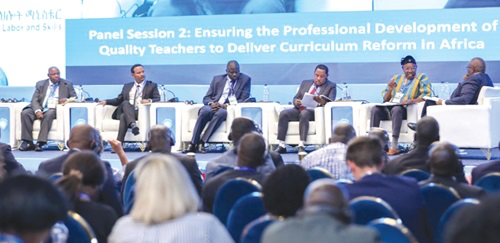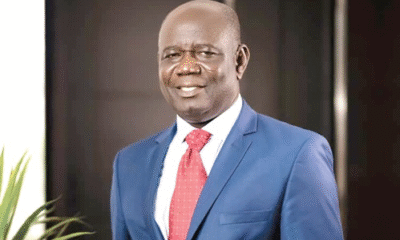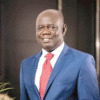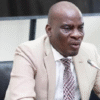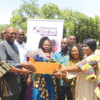At a recent high-level education summit in Addis Ababa, Ghana’s Deputy Minister of Education, Dr. Clement Apaak, made it clear that the country is serious about transforming its education system.
Speaking at Innovation Africa 2025, a three-day summit focused on skills development and digital learning across the continent, Dr. Apaak shared Ghana’s progress in implementing wide-ranging reforms aimed at improving teaching quality, supporting educators, and ensuring access to education for all students—especially in underserved areas.
Here’s a quick look at what Ghana is doing:
1. Teacher Licensing & Continuous Development
To raise professional standards, Ghana now requires all teachers to be licensed. But it doesn’t stop there—teachers must also regularly take part in training and earn points through professional development to renew their licenses. This ensures that teachers are not just qualified once, but are constantly learning and improving throughout their careers.
2. Degree Programmes in Colleges of Education
All teacher training colleges in Ghana have now moved to offer Bachelor’s degrees in education. This reform is designed to better prepare teachers with modern teaching methods, including digital tools and reflective teaching practices.
3. Incentives for Rural Teachers
Teaching in remote areas has always been a challenge, but Ghana is tackling this head-on. Through the Teacher Deployment and Retention Programme, the government is offering financial allowances, housing, and mentorship support to attract and retain teachers in rural and hard-to-reach communities.
4. Promoting African Collaboration
Ghana isn’t keeping its success to itself. Dr. Apaak emphasized that the country is actively sharing resources and best practices with other African nations. Ghana is supporting teacher exchange programmes through ECOWAS and the African Union and participating in platforms like the AU’s CESA Cluster to strengthen teacher development continent-wide.
“Our vision extends beyond Ghana,” said Dr. Apaak. “We believe in sharing our strategies and successes with our brothers and sisters across Africa.”
These efforts align with the African Union’s declaration of 2024 as the “Year of Education,” and show Ghana’s commitment to driving educational transformation—not just nationally, but across the continent.
